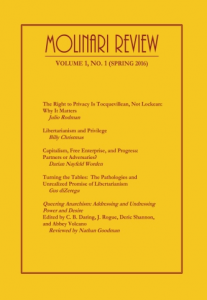So the aforementioned website glitch is solved, and Praxeology.net (along with the Molinari and ALL pages) is back up.
As Aabaco (may they be damned to the lowest circle of hell for all eternity) requested, I downloaded my files through FileZilla and scanned them for malware, but detected none; and their tech “support” line (after hours on hold listening to their horrible music loop) couldn’t tell me which files were infected.

However, since the most likely website vulnerability is WordPress files, and I haven’t used WordPress on that site since Brandon rescued my blog from Yahoo (may they also be damned to the lowest circle of hell for all eternity) back in 2008, I just deleted all the WordPress files, and that did the trick. Website’s back!
At the same time that I’ve been having this website problem, I’ve also been having another, unrelated problem, this one with the Alabama Philosophical Society website, AlPhilSoc.org. Here again the culprit is Aabaco (may they be damned to the lowest circle of hell for all eternity). Y’see, Yahoo (may they be damned to the lowest circle of hell for all eternity) recently transferred all its websites to its newly extruded appendage Aabaco (may they be damned to the lowest circle of hell for all eternity), also apparently known as Luminate (likewise damned). So I had to create a new account with Aabaco (may they be damned to the lowest circle of hell for all eternity) for AlPhilSoc.org.
Now when I first created AlPhilSoc.org (or GeoCities.com/AlPhilSoc, as it was then) back in 2000, for some reason I gave an address at cyberspace.org as my contact email. That was a very old email account of mine – in fact it was the first email account I ever had, from 1994. In any case, I soon changed my contact email to my current address, and I had no reason to think cyberspace.org was still associated with my account. All the AlPhilSoc announcements came to my current address, and when I looked in my account info online, the only email contact listed was my current address.
But when I went to update the AlPhilSoc account with Aabaco (may they be damned to the lowest circle of hell for all eternity), for some reason their system was convinced that the one and only contact email for me was the one at cyberspace.org, and that was the only address they would send their verification notice to – even though Yahoo (may they be damned to the lowest circle of hell for all eternity) still listed the right address in the part of my AlPhilSoc account still hosted with them. Since I no longer had access to my cyberspace.org account – it had long ago been deleted – this meant that there was no way to access the AlPhilSoc site to update it. The tech “support” line for Aabaco (may they be damned to the lowest circle of hell for all eternity) told me there was nothing they could do.
Happily, I found a solution. Although my cyberspace.org account was gone, luckily no one had created a new account with the same username. So I created a new cyberspace.org account (not easily – cyberspace.org doesn’t support webmail, so I had to wrestle with SSL and IMAP and PuTTY, which I know from nuthin), chose my old username, and prompted Aabaco (may they be damned to the lowest circle of hell for all eternity) to send their verification email once more to the cyberspace.org address. This time I could answer and respond to it, and so I have access to AlPhilSoc.org once more. I’ve just updated it with info about the next APS meeting; see my next post.
Apparently I’m not the only one that has been having these problems with Aabaco (may they be damned to the lowest circle of hell for all eternity); see, e.g., here and here.



